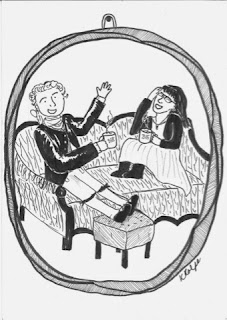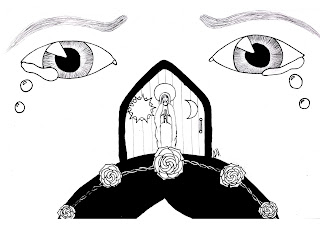LGBT+ History Month: Carlo and the Castrati

Me and Carlo: BBFs (by Kirsty Rolfe) I’d like to introduce you to Carlo. Some of you may have met him before, but he’s one of the two heroes of Cage of Nightingales , the first of my Angelio novels, which is finally due to be published this year by Deep Hearts YA . Carlo is a castrato singer. When we first meet him, he’s thirteen years old, a student at the Conservatorio Archangeli, a prestigious music school in the city-state of Angelio. He’s talented, kind, loves beautiful things, hates arguments, can be flirty, and just wants a friend who sees him as more than a beautiful voice. And he’s canonically asexual and biromantic. Just thought I’d get that out there. Carlo is named after Carlo Broschi (aka Farinelli), the most famous of the castrato singers of the 18th century. I’ve written quite a bit about Farinelli and the other castrati on this blog, but as it’s LGBT+ History Month (in the UK at least) I thought I’d share with you a few facts about them. “Portrait Group: The Singe...







